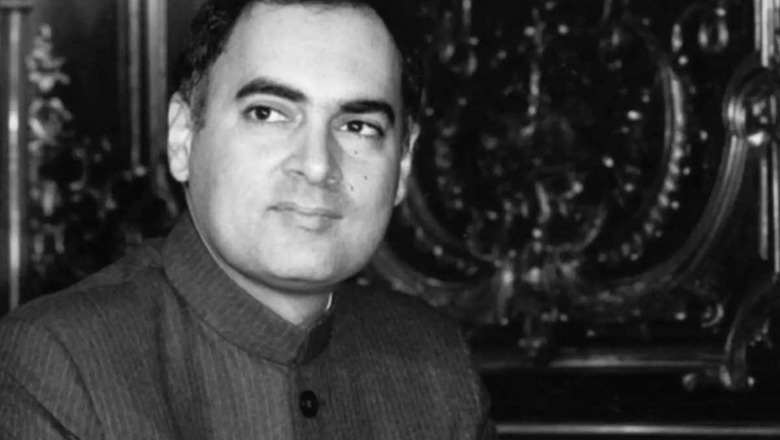
views
As Prime Minister Narendra Modi sets corruption as the primary agenda for the upcoming general elections in 2024, it may perhaps be timely to look at how different Prime Ministers of India have been affected by it. And there cannot be a bigger case study of a Prime Minister abusing his power for dubious deals than that of Rajiv Gandhi. While his family members who came to power before him were also accused of being corrupt and abusive of their position, Rajiv seemed to have taken the baton several goalposts ahead.
Prime Minister Modi, earlier in the week at an election rally in Bhopal, did not hold back when he accused the Congress of siphoning off several lakh crore rupees. He also attacked the other Opposition parties that have been allies of the Congress for many decades, and have enjoyed unhindered support from the GOP to ‘wipe away’ money from the Indian government treasury — a sum total of over Rs 20 lakh crore. PM Modi has been able to launch a full-force attack of this nature, primarily because he has been successful in running a corruption-free government over the last nine years in the country and for eleven years as Chief Minister of Gujarat prior to that.
When it comes to protecting public money, ensuring that it gets used only for the benefit of the people of the country, Modi has been uncompromising. Now, in a stark contrast, let us consider Rajiv Gandhi’s prime-ministerial tenure. The Congress of today continues to paint Rajiv as “Mr Clean” of Indian politics, continuing the narrative that the Congress in 1885 worked very hard to build. The narrative-building efforts were so strong that Rajiv himself, at the Congress’ centenary celebrations in 1986, delivered an impactful speech in which he attacked his own party members as being ‘dalaals’ and running the party as their ‘jagir’.
The context here is important because, this is also around the time it came to light that agents — during the Indira Gandhi regime — had taken about 7 percent bribe in the purchase of German HDW submarines, amounting to Rs 330 crore (Rs 7,000 crore in today’s calculation). These agents also made concessions to the technical specifications and requirements in the submarines, specified by the Indian Navy, whose stated requirements, for instance, for the diving depth was 350 metres, but the HDW submarines could only achieve a diving depth of 250 metres. The cost of the submarines mysteriously increased to Rs 465 crore — such a sudden rise pushed the then Defence Minister, VP Singh, to order that attempts be made to renegotiate the price and bring it down, since it was clear that the Germans were overcharging. In a response to his order, the Indian Ambassador in Germany clarified that the HDW officials were unwilling to renegotiate the price since the 7 percent commission given to Indian agents was included and already paid.
This submarine purchase deal carried over to Rajiv’s tenure and despite all the efforts of his party and ecosystem to paint him as the reluctant, honest, technocrat thrown into the corridors of power, he seemed adept at playing the power game just like previous members of his family. As the HDW submarine scandal broke, VP Singh ordered an inquiry into the accusations of Indians having taken a 7 percent commission. This led to differences between him and Rajiv Gandhi, and the former had to resign from the Union cabinet within three days of ordering the investigation.
Rajiv Gandhi, while holding the charge of the Defence Ministry, closed a large purchase deal with the Swedish Arms manufacturer, AB Bofors, for 400 field howitzers for a price of $1.4 billion (Rs 11.5 thousand crore), which amounts to about $5.1 billion today (about Rs 43 thousand crore).
The news first broke on the Swedish national radio about a year after the deal was signed, that middlemen in India had been paid a large commission for this deal. Pressure built on Rajiv to investigate and name these middlemen and perhaps in an instantaneous moment he announced in Parliament that neither he nor anyone close to him had received any kickbacks for the Bofors deal. This outright lie was one that compromised him — no one was pointing fingers at him before his impulsive outburst.
Meanwhile, the Indian Ambassador in Sweden learned that even while the negotiations led by Rajiv Gandhi were ongoing with the two shortlisted companies for the arms purchase —French firm Sofma and AB Bofors — Rajiv Gandhi while on a visit to Sweden to condole Swedish PM Olaf Palme’s death had assured the incumbent Prime Minister Ingvar Carlsson that the purchase order will go to the Swedish firm, as opposed to the Sofma. This was eight days before the negotiations officially concluded and a purchase order was issued.
As further pressure built, Rajiv Gandhi was forced to allow his government to press the Swedish government to conduct an investigation in Sweden as to who in India were the kickbacks given to by Bofors. However, Rajiv stalled this investigation by assuring the Swedish Prime Minister that Bofors had already clarified to him that no money was paid to middlemen in India and thus, no investigation was necessary. On Rajiv’s insistence, the Swedish government stalled the inquiry. However, as pressure continued to mount on Rajiv, he accused people of his own party of conspiring with ‘international forces’ to bring down his government, using the Bofors deal as an excuse. Following which, he expelled several leaders within the Congress who had begun to point fingers at him.
Meanwhile, further investigations and journalistic reports revealed that three firms had been paid in their Swiss bank accounts — two of which were owned by Hinduja brothers and Vin Chaddha. It was the third firm, AE Services, which linked Rajiv and the family directly to this deal. The investigations and a personal diary of the CEO of AB Bofors eventually revealed that AE Services was owned by Ottavio Quattrocchi, an Italian businessman with close links to Sonia and Rajiv Gandhi. The two families were so close that even the children had reportedly grown up playing together.
Quattrocchi was stationed in India for several years before the Bofors deal and had been similarly acquiring large government contracts, starting with fertilizers. By the time the Bofors deal was closed, it was well known in the corridors that Quattrocchi was the man for the job — for big-ticket procurements in the Rajiv government.
As the investigation continued and more and more details began to emerge of the deal, the public sentiment against Rajiv Gandhi grew. There was immense anger and slogans like, ‘gali gali mein shor hai, Rajiv Gandhi chor hai’ and ‘ab yeh spasht hai, Rajiv Gandhi brasht hai’ began to echo on the streets. Rajiv and the Congress lost the forthcoming elections, due to this mass public anger. However, even after Rajiv’s death, his wife Sonia Gandhi as well as the consequent Congress governments reportedly went out of their way to protect Quattrocchi — whether it was by allowing him to leave India despite orders of his passport to be impounded, hiding the fact that the Interpol had arrested him for weeks to win some state elections, or even Priyanka and other family members meeting their old pal, Quattrochhi’s son, at a party thrown by a Congressman.
From Mr Clean to ‘Rajiv Gandhi chor hai’ — it has been a tough journey for the Gandhis. These ‘revelations’ were scathing and have stuck to them over the years. No matter how much Rahul and Priyanka try to wipe their father’s image clean, the reality is that public memory isn’t short when it comes to allowing foreign firms to loot Indian money – money which could be used for the development of the country. A barrage of scams, repeatedly in the Congress regime, which followed and preceded the Bofors, has ensured that the ‘corruption’ tag from the GOP simply cannot be wiped off, regardless of the thousands of crores spent in media management and brand rebuilding.
This is Part I of a multi-part series. A look at the other parts:
Part II: Opinion | Indian Prime Ministers and Cases of Corruption: Nehru and the Birth of Scams
Part III: Opinion | Indian Prime Ministers and Cases of Corruption: Indira’s Biggest Racket — ‘Garibi Hatao’
Part IV: Opinion | Indian Prime Ministers and Cases of Corruption: Indira’s Dhritrashtra Syndrome & Emergency Excesses
Priyam Gandhi-Mody is an author of three best-selling books, her most recent one being ‘A Nation to Protect’. Her next book is scheduled to release in October 2023.












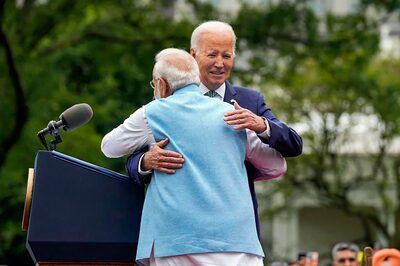
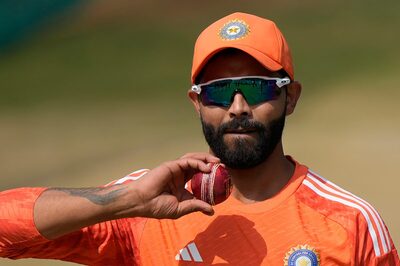
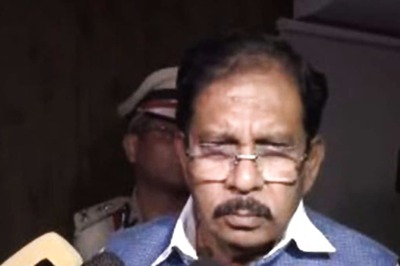

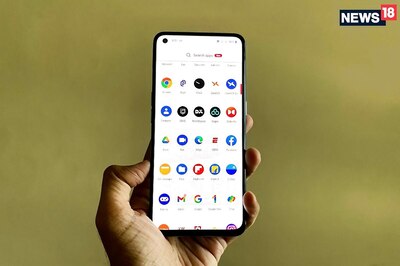

Comments
0 comment